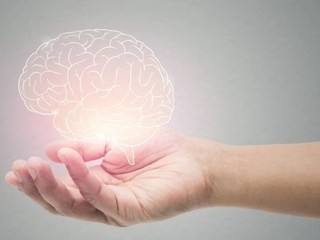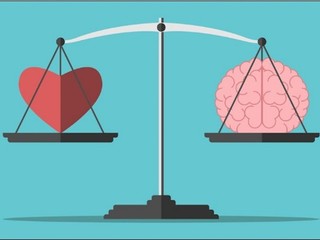 According to the National Alliance on Mental Illness (NAMI), 1 in 5 U.S. adults experience mental illness each year, including 1 in 20 who experience serious mental illness. On top of that, 1 in 6 of those aged 6 to 17 experience a mental health disorder each year. Yet, more than half aren’t getting treatment, meaning more than 28 million adults with mental health problems aren’t receiving care.
According to the National Alliance on Mental Illness (NAMI), 1 in 5 U.S. adults experience mental illness each year, including 1 in 20 who experience serious mental illness. On top of that, 1 in 6 of those aged 6 to 17 experience a mental health disorder each year. Yet, more than half aren’t getting treatment, meaning more than 28 million adults with mental health problems aren’t receiving care.
The private sector has been looking to solve this problem through startup investing: in 2021 alone, mental health companies brought in $5.5 billion globally, across 324 deals, a 139% increase year-to-year. The government has also gotten involved as well, with the Biden administration making mental health access a key priority with a slew of initiatives and money being spent to increase access to care.
On Wednesday the White House announced its latest initiative, setting aside $46.8 million to be doled out by the U.S. Department of Health and Human Services (HHS), through the Substance Abuse and Mental Health Services Administration (SAMHSA), to fund opportunities in the behavioral health space.
The funding will go towards supporting youth mental health, the behavioral health care workforce, substance use treatment and recovery, integrated health care solutions, and training and technical assistance.
The White House specifically outlined four programs that will each be investing part of this new funding, including the Minority Fellowship Program, which will have $15.4 million to spend. This program aims to reduce health disparities and improve behavioral health care outcomes for racial and ethnic populations, while also training and preparing behavioral health practitioners to better serve people of different cultural and ethnic backgrounds.
The second program is the Cooperative Agreements for the Garrett Lee Smith State/Tribal Youth Suicide Prevention and Early Intervention Program, which will have $14.9 million to spend on supporting states and Tribes with implementing youth suicide prevention and early intervention strategies in child and youth-serving organizations such as schools, educational institutions, juvenile justice systems, substance use and mental health programs, foster care systems, and pediatric health programs.
The third program is the Addiction Technology Transfer Centers Cooperative Agreements program, which will giving out $9 million. This program is meant to accelerating the adoption and implementation of evidence-based and promising SUD treatment by heightening the awareness, knowledge, and skills of the workforce that addresses the needs of this population.
Finally, the remaining $7.5 million will be doled out by The National Center for Mental Health Dissemination, Implementation and Sustainment Cooperative Agreement, which will build the capacity of grant recipients, as well as organizations that oversee or directly provide mental health services, to improve the implementation of evidence-based change management processes that guide mental health services.
“Continuing to invest in informed and equitable approaches to mental health and substance use is essential to the health and well-being of individuals and families,” HHS Secretary Xavier Becerra said in a statement.
“These grants directly impact the behavioral health of communities around the nation and are a critical part of the commitment of the Biden-Harris Administration to enhancing accessibility of evidence-based, effective behavioral health care services.”
Biden administration and mental illness
Among the other initiatives put in place by the Biden administration to help tackle the mental health crisis, the 988 Suicide & Crisis Lifeline, a new, easier to remember number for its suicide prevention and crisis hotline, which it rolled out in in July 2022. After one month, there was a 45% increase in overall volume year-to-year. In that month alone, the 988 Lifeline answered 152,000 more contacts, including calls, chats and texts, than it had a year prior, and it decreased the average speed to answer from 2.5 minutes to 42 seconds.
In May 2023, the White House announced it would be spending $200 million to scale up 988, along with new resources for school-based mental health services, which included the Department of Education (ED) awarding more than $280 million in funding to bolster the pipeline of mental health professionals serving in schools.
In September 2023, it was revealed that SAMHSA awarded $232.2 million in grants for suicide prevention and behavioral health care for at-risk communities, including more than $200 million in new funding for states, territories, and Tribal nations and organizations to build local capacity for the 988 Suicide & Crisis Lifeline and related crisis services.
Earlier this year, HHS, through the Centers for Medicare & Medicaid Services (CMS), announced a new model, called Innovation in Behavioral Health (IBH), in which it will test approaches for addressing the behavioral health, physical health, and social needs of the Medicare and Medicaid population.
The IBH Model will connect adults who have mental health conditions and/or SUD with community-based behavioral health organizations and providers, such as Community Mental Health Centers, public or private practices, opioid treatment programs, and safety net providers where individuals can receive outpatient mental health and SUD services.
In February, the White House announced $36.9 million in notices of funding opportunities for grant programs supporting behavioral health services across the U.S.
(Image source: elearningindustry.com)




















